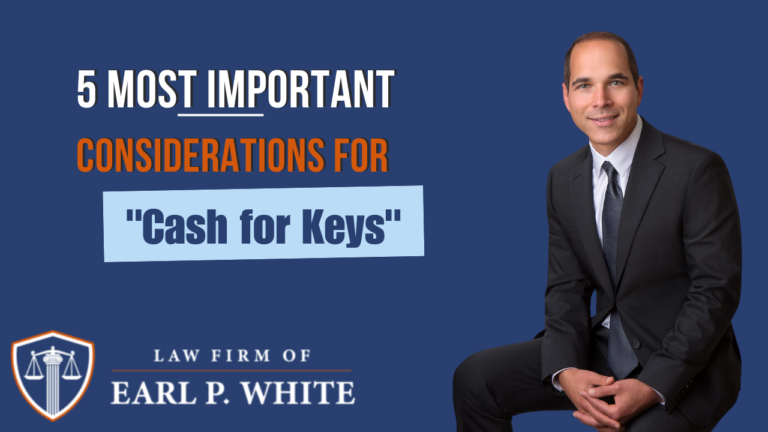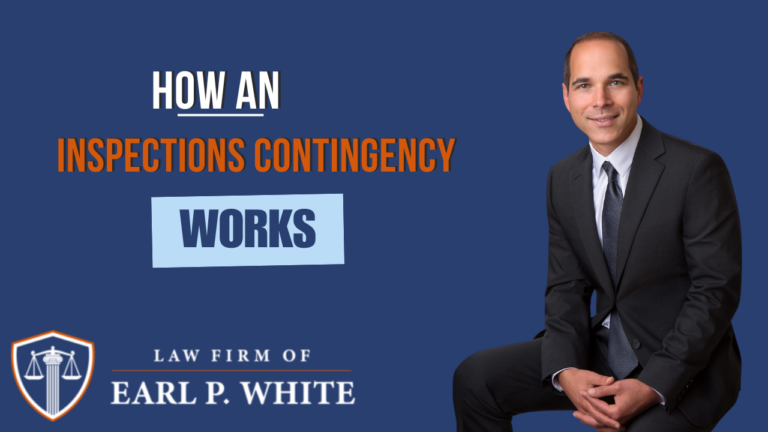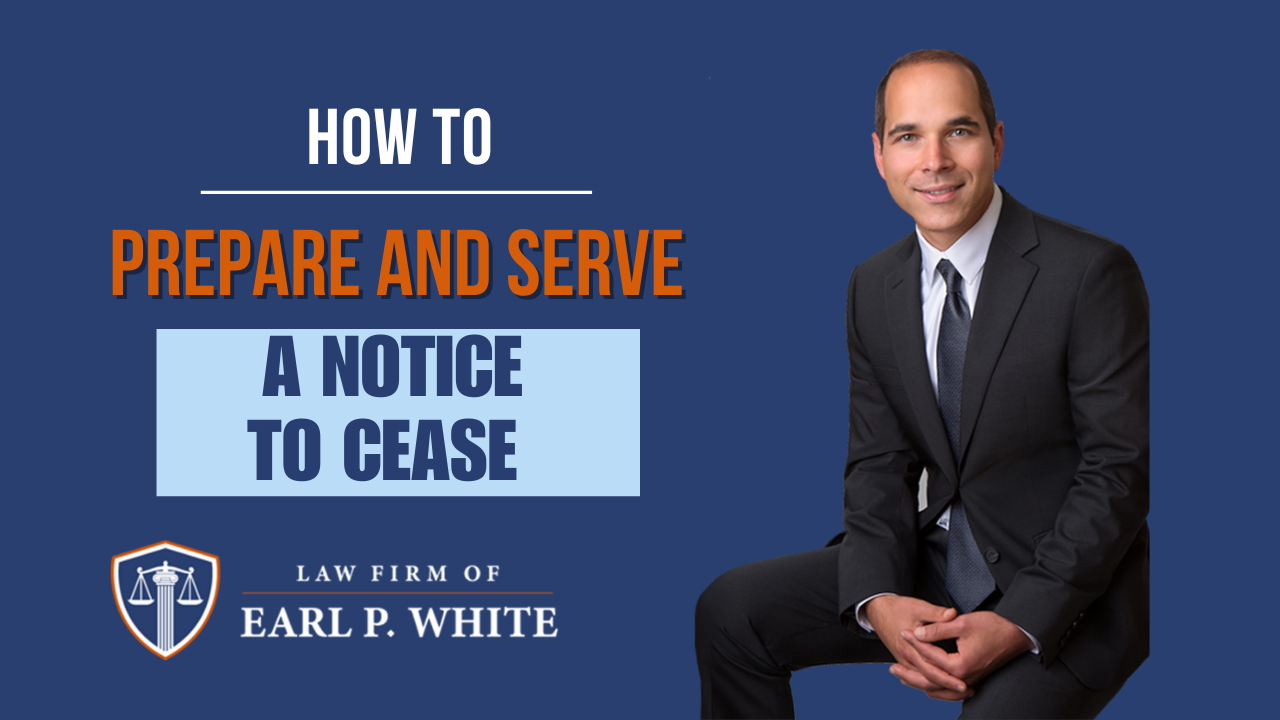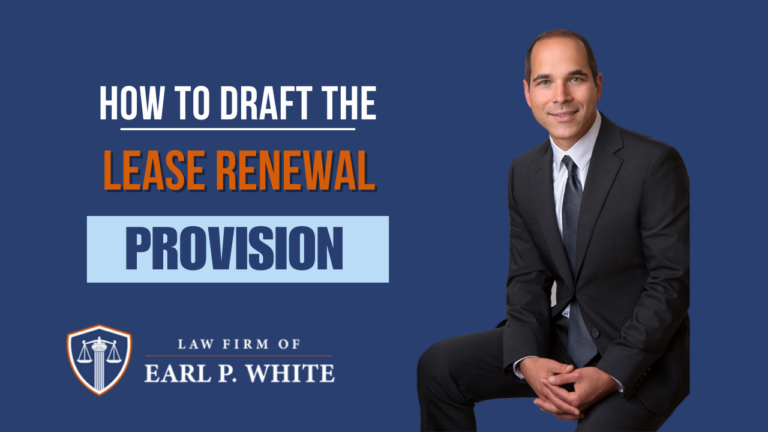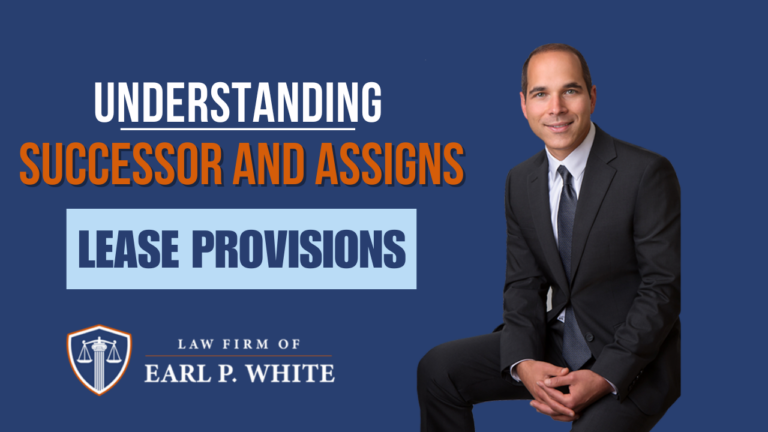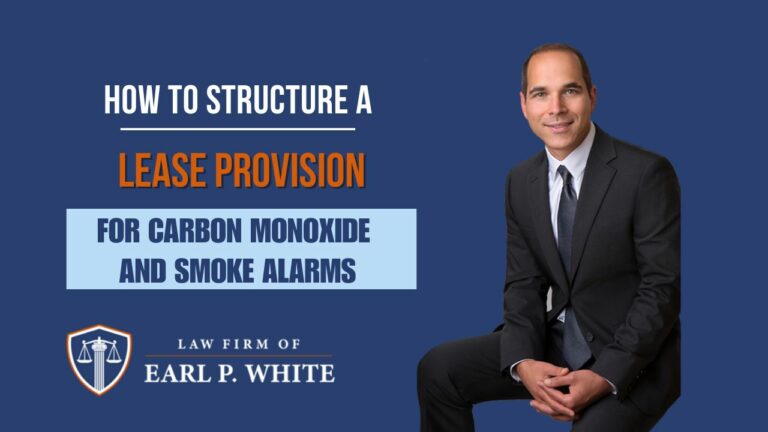Members of our free Real Estate Law Newsletter receive exclusive access to resources for landlords, investors, and other real estate professionals. Join today!
Hi, this is Earl White. This is a video about how to proceed, option strategies, when you have a closing that’s just being delayed and delayed and delayed, and everyone’s getting frustrated because you can’t get a certificate of continued occupancy and a fire and smoke cert.
So between Hurricane Ida, COVID, now we’re going in the winter season, there’s just more and more delays here, creating more and more problems on everyone’s deals. So hopefully this video can be helpful in getting out ahead and solving some of these issues.
So, first thing that I would suggest for everybody hopefully I do it on most of my deals too, is the OPRA request. If you’re on the sell side of the deal then submit in OPRA requests even before you’re listing it or while you’re waiting to accept an offer and find out if there’s open permits, code violations, anything there to resolve, and you could just start resolving it.
And in your attorney review you can just tell the buyer we’re aware of this issue. You can disclose it and that we’re going resolve it during the sale process at our own cost, and so the buyer doesn’t have to worry about it and 99% of the time that’s going to be fine with the buyer if the seller’s taking responsibility for it.
Also, if there’s obvious issues the seller was aware of like you haven’t gotten a permit when you installed a hot water heater or a furnace, then yeah, you could just go ahead and get that because you know it’s going to have to get resolved and there’s no reason to really wait for that. Vice versa, if you’re on the buy side of the deal, submit an OPRA early on in the process.
And once you get out of attorney review this way if the seller isn’t aware, take care of whatever the open permits and violations are, then you could take care of them. You can then notify them and then usually they’ll act pretty swiftly once you have an OPRA and you submit that to them.
So that’s option one, you’ll try to get out ahead of the issue before it fails and cure whatever the problem would be. Now another option is to get a temporary certificate of continue occupancy, some cities call them conditional certificate of occupancy, other cities call them certificates of transfer title.
But the concept is that the buyer is going to agree to take on responsibility for whatever the issue is that’s preventing the issuance of a full certificate of occupancy. So normally what happens the city will go out, they’ll do their inspection, they’ll fail it, they won’t grant CCO, so it’s fails.
Then the buyer gives an affidavit, sworn statement, saying we are going to correct whatever reasons it failed within 30, 60 days, whatever the city wants, then you close with the temporary one and then either the buyer or seller can work it out. If it’s a house flipper type situation and the buyer can just after the closing they just handle it because that’s what they do.
If it’s a situation where it’s more of a regular home buyer and they really just trying to get the closing done, then perhaps leave money in an escrow account at the closing so there’s some protection for the buyer in case the repairs to resolve all the items that repair is more pricey than everyone’s thinking, or just is pricey to begin with. So that’s preventing the problem and getting a temporary approval.
Now sometimes those might not solve the problem, right, and another option is to close without the CCO. Now obviously there’s only a couple ways that can happen.
First is that some cities have their regulations such that you don’t need a certificate of occupancy until the buyer is going to occupy the property. So you can close, transfer title, but the buyer just can’t move in yet.
Now that’s ideal usually when the buyer’s incurring rate lock fees and if the buyer has a flexible living situation, they just don’t want to come out of pocket on rate lock fees, then yeah, close, cut off the rate lock fees, don’t let the mortgage commitment expire. Then either the seller or the buyer can correct what has to get corrected, and then the buyer can move in when they want to after the closing.
And vice versa, some cities will allow you to occupy but not transfer title. So what you can do there is do a use and occupancy agreement. If the issue is the buyer needs to move in somewhere because their housing is the opposite, it’s not flexible, the housing is going away.
Maybe their lease is expired and the landlord is getting them out. So what you can do in that situation if the code allows the buyer to move in, but the transfer of title can’t happen, then you can close without the CCO and then again, keep working to resolve whatever the issues are and then that’s one way to do it.
But again, those two are going to depend on what’s in the city code and what’s going to be allowable. And then just generally make sure everyone’s being diligent.
So if none of those solutions are working or they’re not acceptable to either party for whatever reason, just make sure to keep being diligent with the issue. So some cities for example they won’t proceed on the next step unless you pay for the permit fee, right, and I’ve seen situations where three days pass by the time, sometimes longer, before a simple check will make it to the city.
So keep the process moving by making all the payments or whatever’s going to be required in time. Make sure to get something in writing.
I come across a lot of situations where one of the parties will do repairs to the property to get the CCO but then it turns out that it wasn’t the right repairs, or someone at the city gave them wrong verbal information. And so make sure to insist on getting whatever it is in writing, because sometimes they won’t give it to you in writing unless you request it.
So then again also when you have to submit the paperwork, in addition to the checks, make sure that paperwork gets submitted to the city as soon as possible. You can even check in to verify that they received it because every day that passes another day lost when these closings are late.
Then also just press the contractors, stay on top of them. If they have to get out to the property make sure they get out as soon as possible. I may have to call around little bit.
I know it’s tough in the winter to get people out to the property, get contractors out to do whatever has to get done at the property, but keep on top of them to keep pushing the process along. So guys, hopefully this video is helpful. Give some ideas if you’re struggling to get the CCO and struggling to get your property closed. If this video was helpful at all give it a like, give it a share. Thank you.
Stay ahead with our free newsletter: The Real Estate Law Newsletter – your source for real estate law news.
Essential updates and insights direct to you. Impress clients and colleagues with trending news. Sharpen expertise. Stay legally compliant. Access free legal forms. Don’t miss out – join today!


